- Home
- Iain Rob Wright
Hot Zone (Major Crimes Unit Book 2)
Hot Zone (Major Crimes Unit Book 2) Read online
BOOK SUMMARY
Sarah Stone is missing. The terrorism threat in the UK is growing. MCU agent, Howard Hopkins, has been called to hospital. Not because he is sick, but because there has been an outbreak. Somebody has intentionally infected hundreds of people with Ebola Virus. It's time for the Major Crimes Unit to act.
Sarah Stone hasn't seen home for 4 months. Someone is keeping her captive. She intends to find out who and why. Then make them pay.
Soon Sarah and Howard's path will cross, and they may not be on the same side when it happens. Both are hunting the same man, a psychotic doctor with a grudge against Western society and a mission to inflict upon the world the biological terrors of impoverished Africa. He won't be happy until Ebola, HIV, and Malaria are as much a threat in the United Kingdom and Europe as they are in the 3rd World.
NOTE FROM THE AUTHOR
Thanks for picking up book number 2 in the Major Crime Unit series. I hope that means you read book 1 (Soft Target) and enjoyed it. If not you can get it here. This latest adventure for Sarah Stone and the MCU gang was a lot of fun to write and focuses on some of the threats that we face right now in the world, but please do not be afraid. This is just a work of fiction. You are quite safe. Before you begin, I just need to quickly tell you that I could not have written this book without the following two people.
Jack Millis – the greatest fan and friend a guy could ask for. He helped me with a lot of the character work and if my characters jump off the page, it’s because of him.
Nev Murray – a great guy and a constant supporter of my work. He helped me whip this book into shape so that you can enjoy it. He runs a fantastic blog dedicated to reading at the following address. Check it out:
http://confessionsofareviewer.blogspot.co.uk/
And without further ado, please turn the page, keep your hands inside the cart at all times, and get ready to take that plunge.
“Lord have mercy upon mankind. Deliver and save the world from the dreadful Ebola Virus.”
– Lailah Gifty Akita
“It's one billionth our size and it's beating us.”
– Sam Daniels, Outbreak (1995), Warner Bros.
1
“Dr Krenshaw, are you busy? Mrs Drayton hasn’t been seen in almost two hours and she’s becoming difficult. Could you spare a minute to see her?”
Dr Alistair Krenshaw, an epidemiologist by specialisation, but willing to help out however he could, noticed the young brunette and smiled. Not even thirty-years-old, he suspected, and an attractive young thing for sure, yet he couldn’t, for the life of him, remember her name.
“Of course,” he said. “Would you like to fill me in on her condition, Nurse…? I’m sorry, you seem to have forgotten your name badge.”
The nurse looked down at the bare patch on her tunic and blushed. “Oh, no, I had it earlier, but one of the patients on the night shift got a little…grabby. I must have lost it then. My name is Suzanne.”
“My word, are you okay, Suzanne?”
“Nothing I’m not used to at 3AM on a Friday night, Doctor.”
Krenshaw patted Suzanne softly on the shoulder, admiring her ability to deflect an incident others might have made into an issue. “So,” he said, “what seems to be the problem with Mrs Drayton?”
“She’s been complaining of stomach cramps, can’t keep anything down. We have her on a drip, but she’s demanding that we give her something for the pain. It’s a simple case of gastroenteritis but she’s making a meal of it. We really need to free up her bed, though. We’re inundated with new admissions since they closed St Elizabeth. These spending cuts are going to put us all in early graves.”
Krenshaw knew patients like Mrs Drayton well. Most patients were subservient, looking upon doctors with complete reverence, while those like Mrs Drayton thought they knew exactly what was wrong with them and exactly how they should be treated. Gastric conditions made patients feel like their lives were hurtling to a painful end, but it would always pass within 24 hours or so; trying to make someone with stomach-flu understand that was always a challenge.
Doctor and nurse entered the A&E ward and visited Mrs Drayton in her cubicle. Lying on the bed, the old woman was a picture of misery, with grey hair matted against her sweating forehead and horn rimmed spectacles as crooked as her nose.
“Are you the doctor?” Mrs Drayton demanded, before clutching her stomach and moaning.
Krenshaw smiled without warmth of any kind. It was a skill he had learned, just as he had learned how to take blood and administer a suppository. “I am a consultant,” he explained, “but your nurse, Suzanne, summoned me to come speak with you. I understand you are in some discomfort.”
“I’m on death’s door,” the woman said, clutching her stomach again. “I need summin’ for the pain.”
“I suspect you have a virus, Mrs Drayton. Uncomfortable and painful it may be, but very little that can be done about it unfortunately, other than allowing it to run its course.”
The old woman’s face puckered, not from pain but anger. “Bleedin’ NHS. Useless. You don’t wanna help nobody. I had to wait twenny-minutes for an ambulance because you lot closed the St Elizabeth. It’s all about saving money for your fat bonuses, ain’t it?”
Krenshaw glanced at the comely Nurse Suzanne, who was rolling her eyes and huffing. He gave the girl a subtle grin before turning back to the disgruntled patient. “Okay, Mrs Drayton. If you insist you cannot cope with the pain, we will do what we can.” He plucked out his prescription pad, scribbled something on it, and handed it to Suzanne. “Nurse, could you fill this for Mrs Drayton and get her some pain relief, please? I will take a brief look at her charts while you’re gone. Anything I can do to earn that fat bonus, no?”
“Of course, Doctor.” Suzanne left the cubicle.
“Thank you, Doctor,” said Mrs Drayton, sounding like a completely different person now she’d got her way. “I hate to be a bother, but I’m in absolute agony. I feel like I’m dyin’.”
Krenshaw smiled at the patient, showing his teeth in something not far removed from a snarl. “Mrs Drayton, I have worked in places as far flung as the Congo, Sudan, and even Malaysia. I have seen men and women bleed from their eyeballs and cough up tissue from their lungs. I have seen the destruction wrought by evils such as Ebola, HIV, and Dengue Fever. What you have, Mrs Drayton, is a tummy bug. Now, I have sworn an oath to help you and help you I will, but please refrain from the hyperbole because it hurts my ears.”
Mrs Drayton looked at him like he’d just broken wind, so revolted was the expression on her face. For a moment she merely trembled, but then finally exploded. “How dare you speak to me that way. I pay your wages. Bleedin’ NHS. Where do they get you people from? I remember when doctors used to have manners. The way you just spoke to me is disgusting.”
Krenshaw ceased paying attention to the vitriolic harridan and instead checked upon her readings. All of Mrs Drayton’s vitals were fine, as expected. Her salt levels had come back low, but the saline drip would remedy that. He went over to the drip stand and examined the contents. The saline bag was full, recently changed by the lovely Nurse Suzanne.
With his back still to the ranting Mrs Drayton, Krenshaw reached in and removed something from the breast pocket of his doctor’s coat. The ampule was attached to a syringe he had fashioned himself and filled with a liquid he had brought all the way from Liberia several years before. He had been keeping it for just such an occasion. Removing the barrier from the needle’s tip, Krenshaw pierced the top of the saline bag just above the fill-line, then pressed down gently on the syringe, not needing to use much of the contents to get the desired result. Mrs Drayton continued howling ind
ignities at his back, oblivious to the fact he was killing her.
Suzanne returned just as he was recapping the syringe and plopping it back inside his breast pocket. He gave her a quizzical look. “That was quick.”
She smiled, but it became more of a smirk. “I didn’t want Mrs Drayton to be in pain any longer.”
Mrs Drayton noticed Suzanne had returned and so changed the focus of her tirade. “Give me them blasted pills and lemme out of ‘ere, right now. I can’t believe the way your colleague just spoke to me. I’m gunna lodge a serious complaint, you just see if I don’t. Disgusting. You should both be sacked. Bleedin’ NHS.”
Krenshaw stepped out of the cubicle and waited for the nurse to finish her duties and follow him. When Suzanne eventually stepped out to join him, he raised a dark eyebrow and chuckled. “I believe I’ve freed up that bed for you, Nurse. That is, unless you’ve persuaded Mrs Drayton to prolong her stay.”
Suzanne tilted her head as she looked at him strangely. “Whatever did you say to her?”
“Nothing that was not true.” Krenshaw told her. “When does your shift end, Nurse?”
“In an hour. Do you need me to do something?”
“Only come have breakfast with me. It’s been a wretched night shift, wouldn’t you agree?”
Suzanne blushed. Ten years younger than Krenshaw, at least, but he had seen the attraction every time she looked at him. Eventually she managed to answer. “I would love to, Doctor.”
“Excellent. And, please, call me Alistair.”
“Okay… Alistair. I will meet you out front in an hour.”
“I look forward to it. I will carry on with my rounds until then. You know how it is: always more people to treat.” He patted the ampule of liquid in his breast pocket and began to laugh.
Nurse Suzanne did not understand the joke. She would soon.
2
Howard was alone when he arrived at Reading’s Whiteknight Hospital. It was a hive of activity, more so than normal for a hospital. Doctors and nurses buzzed around inside as well as out, and a great white tent had been established in the grounds. A cadre of police officers kept back anyone without proper business in a way that made the place seem more like a crime scene than a centre of healing.
Howard pulled into the parking lot and headed towards a cordoned area reserved for officials. He flashed his badge at the attending steward and pulled up beside a shiny red Audi. The steward came over and greeted Howard as he got out of his car.
“The quarantine has been set up on the lawns,” he said, “but the response team is operating inside the hospital. There’s a triage operating in the A&E and you’ll probably find someone in charge there.” A brief silence ensued while the steward stared at Howard with a strange grin on his face. Then the man said, “So they’ve called the MCU in on this, have they? Congratulations on saving the Queen last year. I saw it all on the news.”
Howard nodded. “Thanks.”
He didn’t have time for conversation, so he politely dismissed the steward and headed off towards the hospital. The walk was short, thanks to the prioritised parking, but the closer Howard got the slower he walked. Something about hospitals scared him far worse than any member of Al-Qaeda or deranged lunatic. Disease tore a man apart secretly from the inside and waged war with no other agenda than to win.
When Howard passed by the monolithic tent on the hospital’s lawn, he took a quick glance at the entrance flap. The men and women inside the tent all wore white ‘spacesuits,’ which made them look more alien than human. Their appearance was enough to send another wave of panic through him, as it likely did any other member of the public, which was why none of the space suited personnel lingered outside the privacy of the giant tent for more than a handful of seconds. Nor had anyone in authority yet spoken the word, Ebola. As much as the media was trying to incite fear, the government was trying to play things down. Howard knew the truth, though; that over four hundred cases of Ebola had been reported and that over two-thirds of them were currently at Whiteknight hospital being treated. Somehow the bogeyman of West Africa had made its way to the United Kingdom, and had done so with vigour.
Wanting to find someone in charge, Howard headed towards the A&E entrance, stepping around the back of an ambulance with flashing lights and passing through the open glass doors. Chaos reigned inside. The hallways teemed with the sick and injured, while nary a nurse or doctor remained in sight. With the major health crisis confined to the tent outside on the lawn, only a skeleton crew remained inside the hospital proper, and that didn’t help the old man moaning on an unattended gurney or the young man with his nose dripping blood down his shirt. The injured and infirm stumbled around like zombies, seeking help from whoever would listen.
Howard managed to flag down a solitary nurse. She hurried over to him, but seemed like she had a hundred other places to be.
“May I help you?” she asked wearily. Her name badge read: Suzanne.
“Hello, Suzanne. I’m with the MCU. I need to speak to whoever is in charge of the quarantine outside.”
“They’re set up in maternity ward 1. You want Mr Cotta.”
“Thank you.” Howard hurried away, eager to exit the pandemonium of the A&E ward. He left the atmosphere of coughs, sniffles, and moans, and entered into the eerie silence of the maternity ward. The large space was mostly empty except for the rear of the ward where a dozen beds would typically be lined up, but were now probably being used inside the big white tent. Now the ward contained only a single, long desk with a large projector screen set up at one end and a dozen chairs around it. A handful of men and women looked over at Howard as he entered.
“May I help you?” Howard was asked for the second time in as many minutes.
“I’m Agent Howard Hopkins of the MCU. I’m here to investigate the possible terrorist implications of this current health crisis. I believe you are expecting me.”
“Indeed we are,” said a middle aged woman in a doctor’s coat. She trotted over to him and offered her hand. “My name is Doctor Hart. I’m the hospital’s senior pathologist. Mr Cotta here is in charge. He’s been loaned to us by the World Health Organisation.”
A tall, razor-cheeked gentleman with hard grey eyes nodded and spoke in what, to Howard’s ears at least, sounded like an Italian accent. “Pleased to meet you, Agent Hopkins. I am afraid our most pressing concern is treating and containing this outbreak, not helping law enforcement find out what caused it. Surely that can come afterwards?”
Howard saw the awkward expressions on everyone’s faces and realised that Mr Cotta was no friend to anybody there. He was a problem solver, sent in to take charge; similar to Howard in some respects. “I understand your priorities perfectly well, Mr Cotta. They are not dissimilar to my own. If terrorism is responsible, there could be further outbreaks. Therefore, finding those responsible is the best way of keeping this situation contained, wouldn’t you agree?”
Mr Cotta stared at Howard for a moment, statuesque in his stillness. Then he spoke, “Very well, Agent Hopkins, you may have a seat at the table, but please do not impede our work.”
“The last thing I wish to do, as I am sure you would not wish to impede mine.” Howard took a seat, despite everyone else electing to stand. It would make it easier for them to forget he was there.
“I don’t understand how the outbreak is so staggered,” one of the doctors said. “The most mature cases are almost three weeks old, the newest less than one week. If the virus had spread organically then it would have been more systematic. This is almost like a dozen outbreaks spread out over time.”
“As if someone were infecting people purposefully?” asked Howard.
Dr Hart nodded affirmatively. Her hair was quite strikingly blonde. “Quite possibly. If somebody has a strain of Ebola virus they could potentially infect people by injecting them or finding some other way of compromising their system. Typical infection is through contact with bodily fluids but a pure form of the virus would be even easier t
o catch.”
Howard leant an elbow on the table. “Has anybody asked the patients whether they came into contact with syringes recently? We need to canvass them for common similarities.”
“It’s very hard to quiz somebody suffering with Ebola,” said Cotta. “What with all the agony and dying they are doing. Do you see?”
Howard frowned. “I thought Ebola was relatively treatable in the early stages.”
“Perhaps you are thinking of rabies, Agent Hopkins.”
“It’s not so,” explained Dr Hart. “There is little we can do for Ebola sufferers other than keep them hydrated and try to steer them through. The death rate for Ebola in areas with good health care is usually around 40%, but this current outbreak has been far worse. We have lost more than 70% of the initial victims. It appears the traditional ebolavirus we are used to seeing has mutated, possibly tampered with.”
“We are calling it Ebola Reading,” said Cotta. “There were previously five different species of ebolavirus, only four known to affect humans. This is the sixth.”
Howard felt his stomach juices crash against his insides. “How is this species of the virus different?”
“It is just worse,” said Cotta bluntly. “Perhaps you should go and see for yourself, Agent Hopkins. Trust me, it will intensify your efforts to stop this virus from spreading.”
“I’ll take you,” said Dr Hart. “Mr Cotta is right. If you are involved in stopping the outbreak, then you should see it first-hand.”
Howard wanted to get out of his chair and run screaming to an isolated cave where nobody could ever so much as sneeze near him, but he was an agent of the Major Crimes Unit and his job was to find out who was behind the Ebola outbreak and bring them to justice. His fear was secondary to the task at hand, so he got up gingerly from his seat and nodded. “Thank you, Dr Hart. Let’s get it out of the way so we can get back to business.”

 Dark Ride
Dark Ride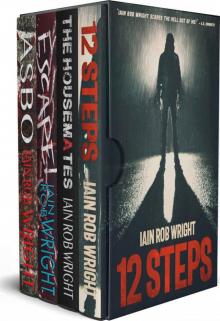 Gripping Thrillers
Gripping Thrillers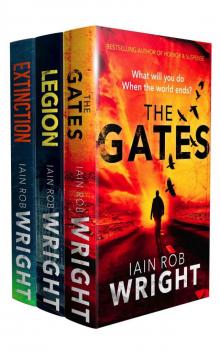 Hell on Earth Trilogy: The Complete Apocalyptic Saga
Hell on Earth Trilogy: The Complete Apocalyptic Saga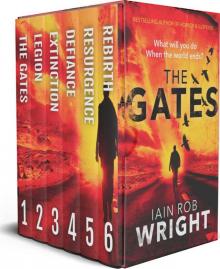 Hell on Earth- the Complete Series Box Set
Hell on Earth- the Complete Series Box Set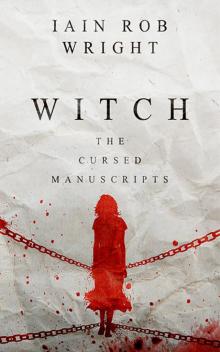 Witch: A Horror Novel (The Cursed Manuscripts)
Witch: A Horror Novel (The Cursed Manuscripts)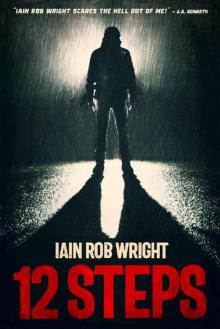 12 Steps
12 Steps A is for Antichrist
A is for Antichrist Blood on the Bar
Blood on the Bar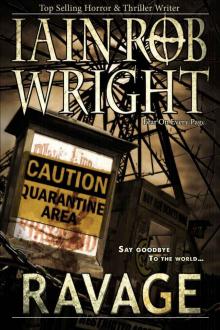 Ravage: An Apocalyptic Horror Novel
Ravage: An Apocalyptic Horror Novel Terminal (Major Crimes Unit Book 4)
Terminal (Major Crimes Unit Book 4)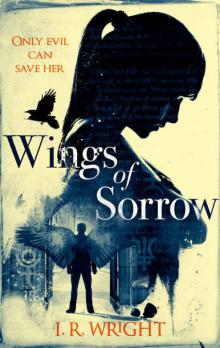 Wings of Sorrow (A horror fantasy novel)
Wings of Sorrow (A horror fantasy novel) Blood on the Bar (Lucas the Atoner Book 1)
Blood on the Bar (Lucas the Atoner Book 1)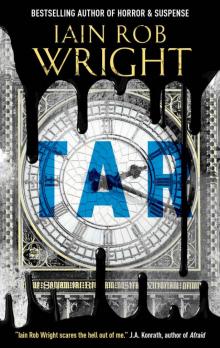 Tar: An apocalyptic horror novella
Tar: An apocalyptic horror novella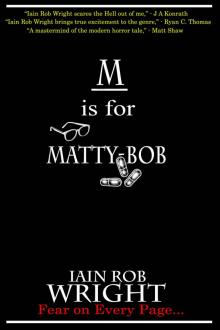 M is for Matty-Bob (A-Z of Horror Book 13)
M is for Matty-Bob (A-Z of Horror Book 13)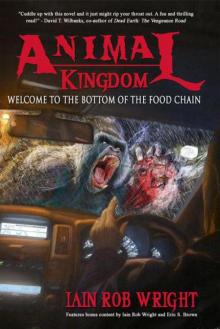 Animal Kingdom
Animal Kingdom Animal Kingdom: An Apocalyptic Horror Novel
Animal Kingdom: An Apocalyptic Horror Novel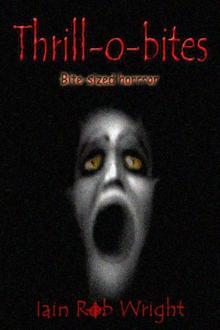 Thrillobytes: bite-sized horror
Thrillobytes: bite-sized horror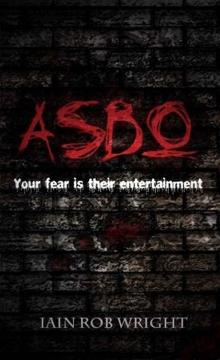 ASBO: A Thriller Novel
ASBO: A Thriller Novel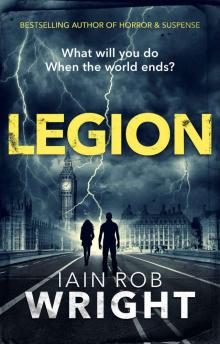 Legion: An Apocalyptic Horror Novel (Hell on Earth Book 2)
Legion: An Apocalyptic Horror Novel (Hell on Earth Book 2)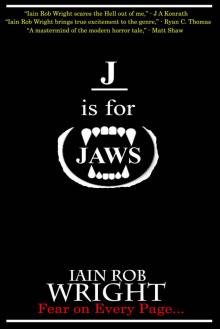 J is for Jaws (A-Z of Horror Book 10)
J is for Jaws (A-Z of Horror Book 10)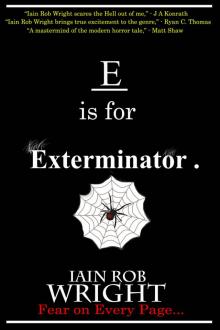 E is for Exterminator (A-Z of Horror Book 5)
E is for Exterminator (A-Z of Horror Book 5)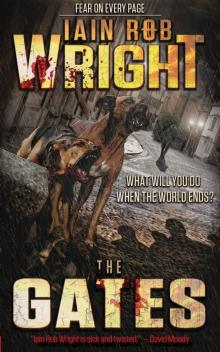 The Gates: An Apocalyptic Novel
The Gates: An Apocalyptic Novel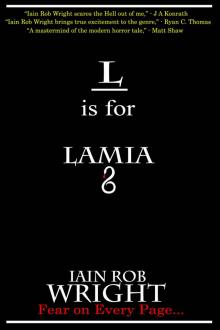 L is for Lamia (A-Z of Horror Book 12)
L is for Lamia (A-Z of Horror Book 12)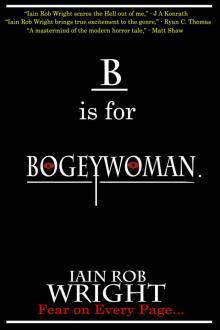 B is for Bogeywoman (A-Z of Horror Book 2)
B is for Bogeywoman (A-Z of Horror Book 2)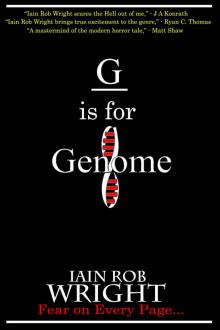 G is for Genome (A-Z of Horror Book 7)
G is for Genome (A-Z of Horror Book 7)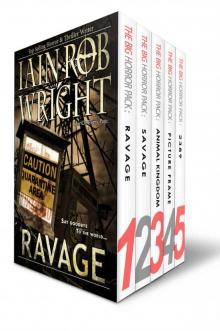 The BIG Horror Pack 2
The BIG Horror Pack 2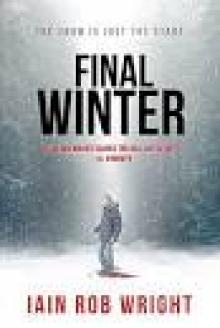 The Final Winter: An Apocalyptic Horror Novel
The Final Winter: An Apocalyptic Horror Novel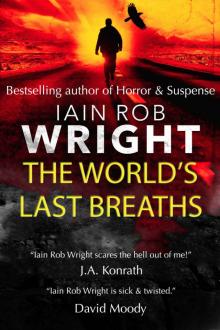 The World's Last Breaths: Final Winter, Animal Kingdom, and The Peeling
The World's Last Breaths: Final Winter, Animal Kingdom, and The Peeling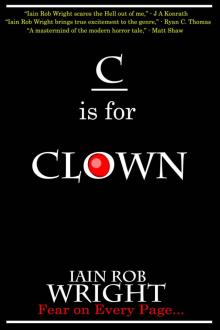 C is for Clown (A-Z of Horror Book 3)
C is for Clown (A-Z of Horror Book 3)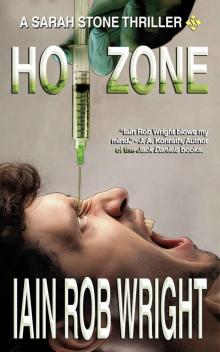 Hot Zone (Major Crimes Unit Book 2)
Hot Zone (Major Crimes Unit Book 2)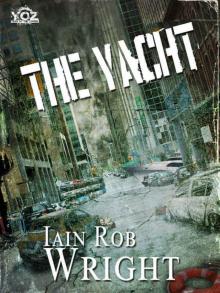 The Yacht (Year of the Zombie Book 3)
The Yacht (Year of the Zombie Book 3) Slasher: the Escape of Richard Heinz
Slasher: the Escape of Richard Heinz I is for Ice (A-Z of Horror Book 9)
I is for Ice (A-Z of Horror Book 9)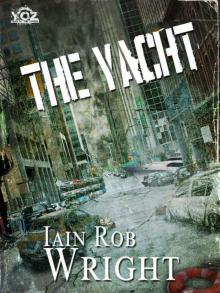 Year of the Zombie (Book 3): The Yacht
Year of the Zombie (Book 3): The Yacht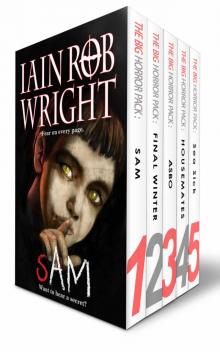 The BIG Horror Pack 1
The BIG Horror Pack 1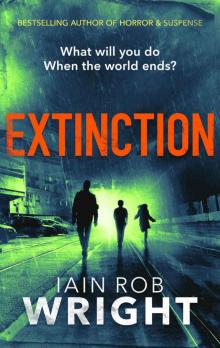 Extinction: An Apocalyptic Horror Novel (Hell on Earth Book 3)
Extinction: An Apocalyptic Horror Novel (Hell on Earth Book 3)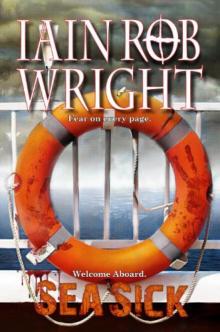 Sea Sick: A Horror Novel
Sea Sick: A Horror Novel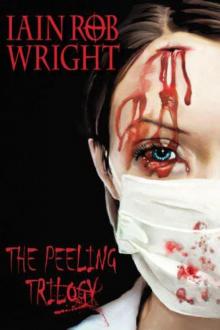 The Peeling Trilogy
The Peeling Trilogy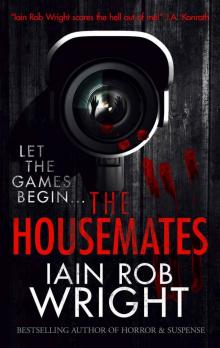 The Housemates: A Novel of Extreme Terror
The Housemates: A Novel of Extreme Terror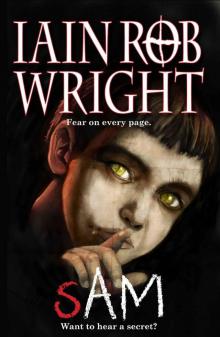 Sam
Sam